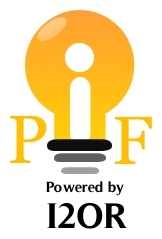Cognitive Dissonance among Health Educators due to Gap in Knowledge and Practice of Teaching Skills in Kathmandu |
| ( Volume 5 Issue 6,June 2019 ) OPEN ACCESS |
| Author(s): |
Bhagwan Aryal, Anup Adhikari |
| Abstract: |
|
The improved way of communication and even the use of technologies in education have replaced the traditional roles of teachers. Several modern teaching skills are applied at the college level. Skill of set induction, skill of stimulus variation, skill of questioning, skill of explanation and skill of closure are some of the common skills to be used in every class. However, several factors may lead teachers to not practice the learnt teaching skills in the classrooms. Cognitive dissonance can occur in many areas of life, but it is particularly evident in situations where an individual's behavior conflicts with beliefs that are integral to their self-identity. An Education graduate after completing their studies may have strong conviction to use |
 DOI :
DOI :
|
| Paper Statistics: |
| Cite this Article: |
| Click here to get all Styles of Citation using DOI of the article. |
 Click Here for
Click Here for Track Your Paper

 Call for Paper
Call for Paper
